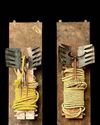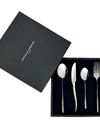
Ever since they first made a deadly impact in early 20th-century naval warfare, submarines have been silent and unseen guardians of the deep. Essential for navies for surveillance, tracking and pursuit, and destruction of hostile platforms, they have acquired added relevance in the nuclear age. Now, the Indian Navy is gearing up for its biggest-ever submarine acquisition programme, Project 75 (India) or P75(I). Initiated in 1997, the Rs 43,000 crore programme aims to build six advanced diesel-electric conventional submarines, equipped with better sensors, weapons and air-independent propulsion (AIP) systems through a joint venture. AIP systems allow non-nuclear submarines to stay submerged for as long as 12 days at a stretch, enhancing stealth capabilities. As per the Navy's request for proposal (RFP), the first submarine should have indigenous content of 45 per cent, which should go up to 60 per cent for the sixth submarine.
Also, it stipulates that the first submarine be rolled out 84 months or seven years from the signing of the contract. After years of deliberations with several manufacturers, Spanish state-owned firm Navantia and German company Thyssen-Krupp Marine Systems (TKMS) are left in the race for the P75(I) contract. The mega-submarine deal crossed a milestone with the completion of Field Evaluation Trials (FET) to check the compliance of the submarines offered with the navy's RFP. While an Indian Navy team visited the TKMS shipyard in March for the FET, Navantia's offer was evaluated in late June. TKMS has tied up with the Mumbai-based Mazagon Dock Shipbuilders Ltd (MDL), and Indian firm Larsen & Toubro (L&T) with Navantia to build the submarines. The Germans are said to have gained the upper hand in the FETS with their Type 212 submarines, as Navantia failed the navy's stringent AIP requirements. The Navy has submitted its report to the Defence Ministry.
この記事は India Today の 16th September, 2024 版に掲載されています。
7 日間の Magzter GOLD 無料トライアルを開始して、何千もの厳選されたプレミアム ストーリー、9,000 以上の雑誌や新聞にアクセスしてください。
すでに購読者です ? サインイン
この記事は India Today の 16th September, 2024 版に掲載されています。
7 日間の Magzter GOLD 無料トライアルを開始して、何千もの厳選されたプレミアム ストーリー、9,000 以上の雑誌や新聞にアクセスしてください。
すでに購読者です? サインイン

INNOVATION MEETS INDIVIDUALITY
While his unique Kuwaiti and Indian lineage gives him a deep understanding of different cultures, the Pink City is where all the inspiration and action take place

A ROYAL INTERLUDE
The City Palace is one of the most iconic spaces in Jaipur. Maharaja Sawai Padmanabh Singh takes us inside his private quarters that like him, is a mix of tradition and modernity.

CRAFTING NEW MEANING
With the Shekhawat Haveli as the backdrop, a jewellery designer traces why art, craft, design and culture are colliding in Jaipur

A Trip down Memory Lane
This is how a fashion designer duo is ensuring you come home to the holidays, all year round

ARTFUL DECOR
Here's why Indian design caught eyeballs and loosened purse strings at the India Art Fair 2025

Duo Lingo
Music composer pair Naren Chandavarkar and Benedict Taylor have managed to make their long-distance collaboration work

GEM OF A TOME
Ranjit Hoskote has curated a stellar anthology of Indian writing through the ages in this offering from the Murty Classical Library of India

HISTORY REIMAGINED
A palace in Indore became the basis for this home in Jaipur by VidhiNitin Design, resulting in a blend of styles, colours and genres

INFLECTION OF IDENTITIES
An exhibition by the Aravani Art Project shines a light on the trials and triumphs of India's trans community

Almost a Clean Sweep
Close to what it promises, the Bosch Unlimited 7 Handstick vacuum cleaner could be worth an investment for your home